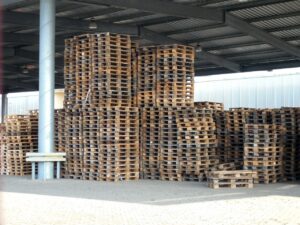Sustainability and wellness are becoming integral to modern living, especially in a country like India, where environmental concerns and health-conscious lifestyles are gaining momentum. Bamboo, a fast-growing and eco-friendly resource, is emerging as a key material in the wellness industry. From skincare to personal care, home essentials, and nutrition, bamboo-based products offer a natural, biodegradable, and highly sustainable alternative to synthetic counterparts. This blog explores why bamboo is the future of sustainable wellness products in India and how it is revolutionizing the industry.
1. The Rising Demand for Sustainable Wellness in India
India is witnessing a paradigm shift towards sustainable living, driven by:
Increased Awareness: Consumers are becoming more conscious of the impact of synthetic and chemical-laden products on health and the environment.
Government Initiatives: Policies promoting sustainable alternatives, such as the Plastic Ban and Green India Mission, encourage eco-friendly product adoption.
Growing Market for Natural Products: Ayurveda, organic skincare, and plant-based nutrition are booming industries, making bamboo an ideal material for wellness products.
2. What Makes Bamboo an Ideal Sustainable Resource?
Bamboo stands out as a sustainable material due to its unique properties:
Rapid Growth: Bamboo grows up to three feet per day, making it a highly renewable resource.
Biodegradability: Unlike plastic, bamboo decomposes naturally, reducing landfill waste.
Carbon Sequestration: Bamboo absorbs 35% more carbon dioxide than trees, making it a powerful tool against climate change.
Chemical-Free Cultivation: Requires no pesticides or fertilizers, making it safer for the environment.
Versatility: Can be used in personal care, wellness, home products, and even food supplements.
3. Bamboo-Based Wellness Products in India
Bamboo is transforming various sectors of the Indian wellness industry. Here are some key areas where bamboo is making an impact:
A) Bamboo Skincare & Beauty Products
Bamboo Extract in Skincare: Rich in silica, bamboo extract promotes collagen production, skin elasticity, and hydration.
Bamboo Charcoal in Face Masks & Soaps: Acts as a natural detoxifier, absorbing impurities and excess oil.
Bamboo Sheet Masks: Unlike synthetic masks, bamboo fiber sheet masks are biodegradable and skin-friendly.
Bamboo Toothbrushes & Combs: Replacing plastic alternatives, these products are durable, antibacterial, and eco-friendly.
B) Bamboo Personal Hygiene & Wellness
Bamboo Cotton Buds & Tissues: Sustainable replacements for plastic and paper-based alternatives.
Bamboo Sanitary Pads & Diapers: Biodegradable and gentle on the skin, reducing exposure to harsh chemicals.
Bamboo Towels & Bath Accessories: Highly absorbent, antimicrobial, and long-lasting.
C) Bamboo Home & Lifestyle Products
Bamboo Water Bottles & Straws: Reduce single-use plastic consumption.
Bamboo Yoga Mats & Meditation Accessories: Naturally anti-microbial, providing a cleaner and greener wellness experience.
Bamboo Bedding & Clothing: Breathable, hypoallergenic, and soft on the skin.
D) Bamboo Nutrition & Wellness Supplements
Bamboo Shoot Powder & Extracts: Rich in antioxidants, fiber, and essential minerals, promoting gut health and immunity.
Bamboo Tea: A caffeine-free alternative loaded with silica, aiding hair and skin health.
Bamboo Charcoal Detox Supplements: Used for natural detoxification and digestion support.
4. Environmental & Economic Impact of Bamboo in India
A) Reduction in Plastic Pollution
Bamboo-based alternatives significantly reduce plastic waste, aligning with India’s goal of eliminating single-use plastics.
B) Empowering Rural Economies
Bamboo cultivation provides livelihood opportunities for farmers, artisans, and small-scale entrepreneurs.
The Indian government has promoted bamboo farming under the National Bamboo Mission, boosting the economy and rural development.
C) Water & Soil Conservation
Bamboo improves soil health by preventing erosion.
It requires less water compared to cotton or synthetic materials, making it a sustainable farming option.
5. Challenges & the Future of Bamboo Wellness Products in India
Challenges:
Higher Initial Costs: Some bamboo products have a higher upfront price compared to plastic or synthetic alternatives.
Limited Awareness: Many consumers are unaware of the benefits of bamboo-based products.
Supply Chain Limitations: Efficient processing and distribution of bamboo-based products need further development.
Future Potential:
With increasing awareness and government support, bamboo wellness products are expected to see exponential growth in India.
Innovations in bamboo-based bio-packaging and biodegradable wellness products will further expand the market.
More brands are likely to invest in bamboo R&D, making it a mainstream sustainable alternative.
6. Conclusion: Why Bamboo is the Future of Sustainable Wellness
Bamboo is more than just a sustainable material—it is a game-changer in India’s wellness industry. From skincare and personal hygiene to home essentials and nutrition, bamboo-based products offer an eco-friendly, non-toxic, and highly effective alternative to synthetic wellness solutions. As consumers, choosing bamboo-based products is a small yet significant step towards a healthier lifestyle and a greener planet.
With the right awareness, government support, and technological advancements, bamboo will lead the way in India’s sustainable wellness revolution. So next time you shop for personal care, skincare, or lifestyle products, make the switch to bamboo and embrace a sustainable future!






